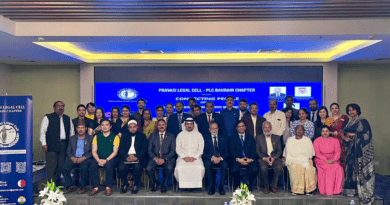Remarkably awestruck: Traditional Medicine of India Is Now Being Administered Globally.
A major change is occurring as the Ministry of Ayush leads the world’s medical revolution, bridging the gap between traditional medicine and contemporary healthcare.
Great Indian traditional medicine systems have a long history that spans from ancient times to the present day, as far as human healthcare is concerned. Our culture has long emphasized a comprehensive healthcare system that is home to a wealth of information on medical terms, statistics, and treatment protocols. Health experts have passed down traditional healthcare ideals from one generation to the next by adhering to several streams of historic medicinal systems such as Ayurveda, Siddha, and Unani, our ancient Vaidyas. Ayush focuses on reestablishing the harmony between the mind, body, and awareness, as well as promoting the body’s inherent healing power.
In the current era of globalization, the creation of mechanisms for globally accepted, evidence-based medical systems has become imperative in order to provide equivalent medical treatment options for the world’s population. A robust system has been established at the Ministry of Ayush to address this requirement. A significant step toward the global recognition of traditional medicine has been taken with the World Health Organization’s recent establishment of the first and only Global Center of Traditional Medicine in Jamnagar, Gujarat. Recent years have seen a dramatic paradigm change in the field of worldwide healthcare as traditional medicine’s ™ potential benefits have come to light.
Under the Ministry of Health and Family Welfare, the Central Bureau of Health Intelligence (CBHI) serves as a WHO Collaborating Center for ICD-related operations and makes it easier to gather and disseminate data on morbidity and mortality. In the past, the majority of the data that was gathered was focused on medical disorders that could only be diagnosed through biomedicine. The collected data did not include the statistics or glossaries regarding the disorders and conditions based on Siddha, Unani, and Ayurvedic systems from Ayush. While some nations have had national Siddha, Unani, and Ayurvedic categorization systems in place for a long time, the data derived from these systems has neither been standardized nor made available internationally. International standardization will be made possible by incorporating Ayush in the ICD, enabling measurement, counting, comparing, creating questions, and long-term monitoring.
A significant advancement was made on February 11, 2020, when the Ministry of Ayush and the World Health Organization inked a donor agreement to build a second module for the traditional medicine chapter of the International Classification of Diseases, 11 (ICD-11). The fact that many other WHO member countries are adopting the same methodology for adding terms related to traditional medicine diseases to the ICD is a positive sign of the system’s expanding global reach. There is a need for patient treatment that is more comprehensive.




